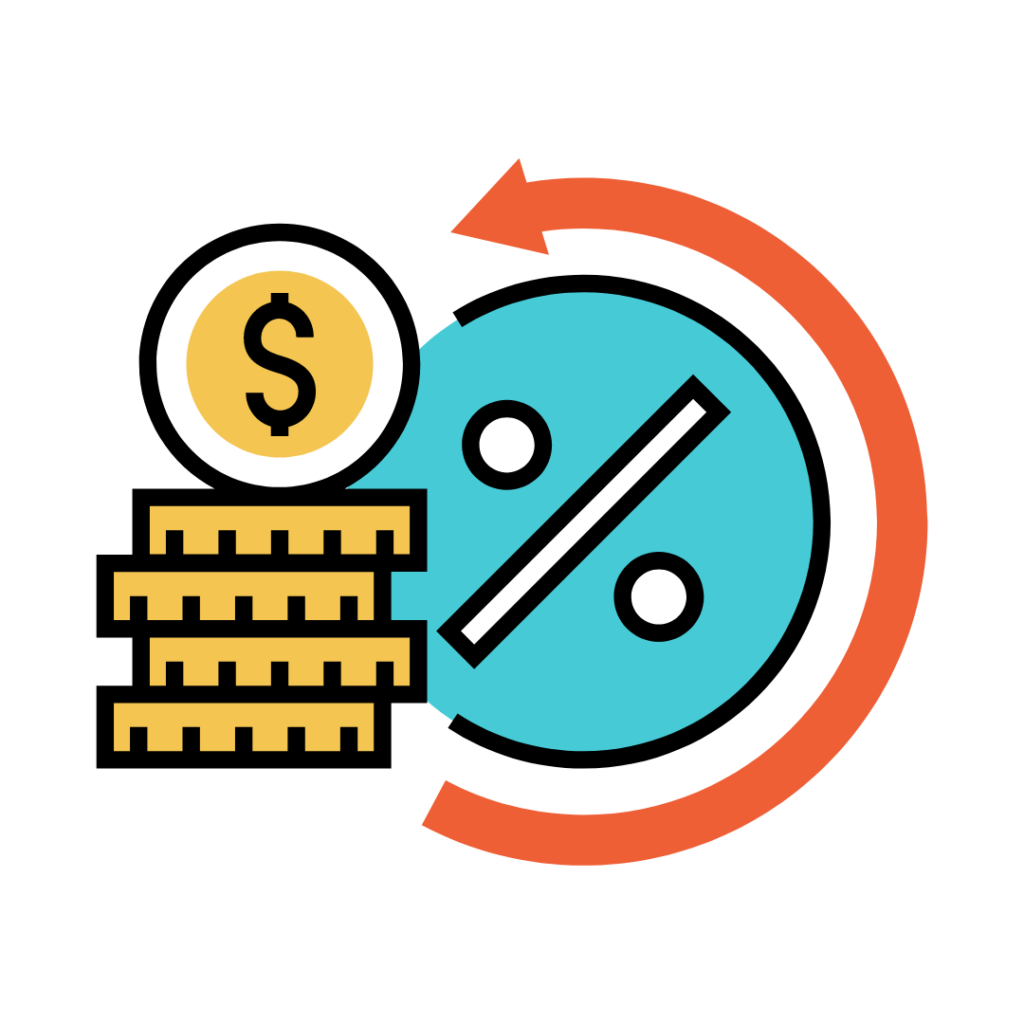Confused about whether you need to pay superannuation for your contractors?
Businesses engage contractors for specialised skills or to streamline costs. But keep in mind, that superannuation isn’t always off the table.
You generally don’t pay super for independent contractors. But, if the contract is wholly or principally for their labour, you might be liable. This applies even if they have an ABN, regardless of their earnings amount.
So, a seemingly genuine “contractor” might be classified as an “employee” under the Super Guarantee Act.

Here are the key factors that could trigger super on contractor payments:
- The individual is paid for their labour and skills
- The individual can't subcontract the work to someone else
- The individual is not paid to achieve a result or outcome
Tip: If the individual (i.e. independent contractor) is performing work for you through an entity such as a company or trust, they would not be considered an employee under the Super Guarantee Act.
If you’re keen to explore changing accountants, we have a non-obligation process to do that. The first step is booking a strategy call with one of our accounting team. It’s a free 20-minute zoom or phone call where you get to meet us to manage your questions.
From that point, you can consider doing a “Look Under The Hood” with us. There is no obligation to change accountants, but we give you a second opinion if you’re paying too much tax.
Throughout that process, we can identify any problems we see with your current setup. Anything that your current accountant hasn’t claimed, or tax you may have overpaid, and strategies of how we might fix that going forward. We can run through with you once you book with us.
Boost your Nest Egg: Super contribution caps are increasing from 1 July 2024
Good news for people who want to contribute more into their super.
Here’s a quick breakdown of the changes taking place from 1 July 2024:
- Concessional contributions (CC) cap: This increases from $27,500 to $30,000 per year. This includes employer contributions and salary sacrifice contributions.
- Non-concessional contributions (NCC) cap: This increases from $110,000 to $120,000 per year. This allows you to contribute your own after-tax dollars to your super.
Maximum NCC cap under bring-forward rules: This increases from $330,000 to $360,000. This allows you to make larger contributions under specific eligibility

If you’re keen to explore changing accountants, we have a non-obligation process to do that. The first step is booking a strategy call with one of our accounting team. It’s a free 20-minute zoom or phone call where you get to meet us to manage your questions.
From that point, you can consider doing a “Look Under The Hood” with us. There is no obligation to change accountants, but we give you a second opinion if you’re paying too much tax.
Throughout that process, we can identify any problems we see with your current setup. Anything that your current accountant hasn’t claimed, or tax you may have overpaid, and strategies of how we might fix that going forward. We can run through with you once you book with us.
The Crucial Timing Aspect Of Restructures
Timing is important, not just from an eligibility perspective, but also in terms of effort. We wouldn’t move houses if we were expecting a baby in the coming week, just as you wouldn’t move your business if you are about to go for one of your biggest tenders. So, it’s about choosing your battles wisely. If you’re considering it, you’ll want to think about it as early as possible and choose a suitable time as well.
From a tax perspective, we typically discuss wrapping up your prior business at the end of a tax period. Financially, it’s great, but sometimes it’s not ideal. At least at the end of a BAS period, too. That way, you’re not dealing with two BASs simultaneously. These small adjustments make things a bit easier and ensure a clean break.

If you’re keen to explore changing accountants, we have a non-obligation process to do that. The first step is booking a strategy call with one of our accounting team. It’s a free 20-minute zoom or phone call where you get to meet us to manage your questions.
From that point, you can consider doing a “Look Under The Hood” with us. There is no obligation to change accountants, but we give you a second opinion if you’re paying too much tax.
Throughout that process, we can identify any problems we see with your current setup. Anything that your current accountant hasn’t claimed, or tax you may have overpaid, and strategies of how we might fix that going forward. We can run through with you once you book with us.
Restructuring Discretionary Trusts: Key Facts

A discretionary trust does not allow for a fixed interest or a fixed percentage ownership within the trust itself. They are very common, especially within family groups running a business; this structure is quite normal from that perspective.
So, when there is a need for more than one family group to own that entity, we may need to consider one of two options. One option is a unit trust, where a fixed ownership percentage can be established. The other option is a company, where shares can be allocated to each family, or if there are multiple investors, or companies can have fixed entitlements in shareholding.
This is a fundamental requirement when considering an external investor and a very common reason for wanting to restructure.
If you’re keen to explore changing accountants, we have a non-obligation process to do that. The first step is booking a strategy call with one of our accounting team. It’s a free 20-minute zoom or phone call where you get to meet us to manage your questions.
From that point, you can consider doing a “Look Under The Hood” with us. There is no obligation to change accountants, but we give you a second opinion if you’re paying too much tax.
Throughout that process, we can identify any problems we see with your current setup. Anything that your current accountant hasn’t claimed, or tax you may have overpaid, and strategies of how we might fix that going forward. We can run through with you once you book with us.
Has your business been impacted by the South Queensland Severe Storms and Rainfall?

The Queensland Government has made Extraordinary Disaster Assistance Recovery Grants available to assist directly impacted primary producers, small businesses, and non-profit organisations with the costs of cleanup and reinstatement.
Depending on your business type, the maximum grant available ranges from $50,000 to $70,000.
To be eligible, your property must be located in one of the following defined disaster areas:
City of Gold Coast Council
Logan City Council
Scenic Rim Regional Council
Click this link to find out if you’re eligible and to apply.
Additionally, Disaster Assistance Loans are available if the grants are not enough. Please visit this link for details and how to apply.
If you’re keen to explore changing accountants, we have a non-obligation process to do that. The first step is booking a strategy call with one of our accounting team. It’s a free 20-minute zoom or phone call where you get to meet us to manage your questions.
From that point, you can consider doing a “Look Under The Hood” with us. There is no obligation to change accountants, but we give you a second opinion if you’re paying too much tax.
Throughout that process, we can identify any problems we see with your current setup. Anything that your current accountant hasn’t claimed, or tax you may have overpaid, and strategies of how we might fix that going forward. We can run through with you once you book with us.
The Worst Business Structure Revealed

We can choose different types of entities when we structure a business.
The first one which is the most popular one is being a sole trader. It might be the most popular but it’s the worst structure.
We want to be having companies and trusts or a combination of both for your business structures when we set that up as accountants.
There are a few reasons why. Tax is a huge reason why. Sole trader makes it very difficult for tax planning versus companies and trusts. But the big one is asset protection, it’s our focus. If you’ve got assets in your own name and your business gets sued, then literally your personal assets, even your home, and your car can be used to pay back creditors or the person suing you.
If you’re keen to explore changing accountants, we have a non-obligation process to do that. The first step is booking a strategy call with one of our accounting team. It’s a free 20-minute zoom or phone call where you get to meet us to manage your questions.
From that point, you can consider doing a “Look Under The Hood” with us. There is no obligation to change accountants, but we give you a second opinion if you’re paying too much tax.
Throughout that process, we can identify any problems we see with your current setup. Anything that your current accountant hasn’t claimed, or tax you may have overpaid, and strategies of how we might fix that going forward. We can run through with you once you book with us.
Seize Cashbacks Before They Disappear

We recently invited Colin O’Loughlin, Director and Mortgage Broker of Arch Brokerage to the webinar. Here’s what he said –
“Cashbacks have been rife within the finance industry for the best part of the last three or four years. There’s been a lot of lenders that have access to cashback options. Anywhere between $2,000 and $5,000, which is quite a bit of money moving between lenders.
We are seeing them go away from the market. So, we’ve seen pretty much all your Big 4 lenders pull out of that, minus ANZ. It’s less than a handful of lenders left; whereas previously, we would’ve said there’s a good 10 or 15 that are offering cashbacks. So, we’re seeing a lot of the lenders pull out of the market.
It’s not always a driving factor, but if you can get a better rate and you can get these cashbacks while they’re still around, it can still be a great opportunity to take advantage of the money that’s available from the lenders right now.”
If you’re keen to explore changing accountants, we have a non-obligation process to do that. The first step is booking a strategy call with one of our accounting team. It’s a free 20-minute zoom or phone call where you get to meet us to manage your questions.
From that point, you can consider doing a “Look Under The Hood” with us. There is no obligation to change accountants, but we give you a second opinion if you’re paying too much tax.
Throughout that process, we can identify any problems we see with your current setup. Anything that your current accountant hasn’t claimed, or tax you may have overpaid, and strategies of how we might fix that going forward. We can run through with you once you book with us.
How To Avoid A Division 7A Loan Disaster

On a recent webinar, Rizal Ramzan, Partner of Inspire, talked about how to avoid a Division 7A loan disaster. Here’s what he said:
“There are situations where people want to keep their taxable income low and save taxes to maintain a lower income.
So, what they do is they pull a small amount of salary or a small dividend in their personal name. However, their living expenses exceed what they have actually withdrawn.
That is where the problem arises. They still have to pay for their home loan, so they pull money out of the business. That additional top-up, that difference, can become a Division 7A loan if not treated properly, or if there isn’t a plan for it.
So, the fundamental issue is you need to work backward first. Determine what you need in terms of your living expenses and lifestyle. Whatever that amount is, that’s the amount you want to take out personally.
The reason we emphasize this is that you won’t be able to pay it back. It’s not an investment; it’s an amount you cannot return. Another analogy to consider is that if you don’t take it out personally and get taxed on it, borrowing for it is like living on a credit card, in a sense.”
If you’re keen to explore changing accountants, we have a non-obligation process to do that. The first step is booking a strategy call with one of our accounting team. It’s a free 20-minute zoom or phone call where you get to meet us to manage your questions.
From that point, you can consider doing a “Look Under The Hood” with us. There is no obligation to change accountants, but we give you a second opinion if you’re paying too much tax.
Throughout that process, we can identify any problems we see with your current setup. Anything that your current accountant hasn’t claimed, or tax you may have overpaid, and strategies of how we might fix that going forward. We can run through with you once you book with us.
The Reason Why Division 7A Loans Exist

Division 7A exists because if we leave money in companies to be taxed, and then we take it out without ourselves getting taxed on it, that’s generally how it happens.
So, why would you need money out of a company?
Let’s consider a scenario where all the business income goes into the company, and we have $0 taxable income at the individual level. For instance, you need to cover living expenses for the person. A mortgage needs to be paid or rent. You might buy property, make other investments, or cover any other lifestyle expenses.
So the question is, how are these expenses going to be paid?
And that’s where Division 7A aims to prevent people from simply withdrawing cash from companies at a 25% tax rate and spending it personally when they would otherwise be taxed at 47%.
If you’re keen to explore changing accountants, we have a non-obligation process to do that. The first step is booking a strategy call with one of our accounting team. It’s a free 20-minute zoom or phone call where you get to meet us to manage your questions.
From that point, you can consider doing a “Look Under The Hood” with us. There is no obligation to change accountants, but we give you a second opinion if you’re paying too much tax.
Throughout that process, we can identify any problems we see with your current setup. Anything that your current accountant hasn’t claimed, or tax you may have overpaid, and strategies of how we might fix that going forward. We can run through with you once you book with us.
The Benefits Of Secured Division 7A Loans

If you secure it, the ATO allows you to extend the repayment period from seven years to 25 years. What the ATO is trying to achieve is that if you borrow money from a company, as long as it’s on commercial terms, they’ll permit it. So if you’re securing it over 25 years, that’s like a mortgage on a home loan, right? Secured and protected for 25 to 30 years. We can stretch it out. If it’s unsecured for seven years, you have to pay it off much more quickly.
Now, why is this a longer-term solution? For assets like properties, you might hold onto them for a long time, especially if it’s your personal home, and you don’t want to be forced to pay off part of your home loan within seven years. You want to align that with all the other loans, typically over 30 years.
So, what you do is align that loan, secure it, and then it becomes a solution. It doesn’t eliminate it, but it reduces the minimum repayment each year significantly. Now, whenever you receive income from salary or dividends from your business, you can use that to pay your home loan, let’s say to CBA. That’s the monthly payment to CBA. Another payment goes to your own bucket company, but over 25 years, in smaller increments.
If you’re keen to explore changing accountants, we have a non-obligation process to do that. The first step is booking a strategy call with one of our accounting team. It’s a free 20-minute zoom or phone call where you get to meet us to manage your questions.
From that point, you can consider doing a “Look Under The Hood” with us. There is no obligation to change accountants, but we give you a second opinion if you’re paying too much tax.
Throughout that process, we can identify any problems we see with your current setup. Anything that your current accountant hasn’t claimed, or tax you may have overpaid, and strategies of how we might fix that going forward. We can run through with you once you book with us.
Get Cashed Up


